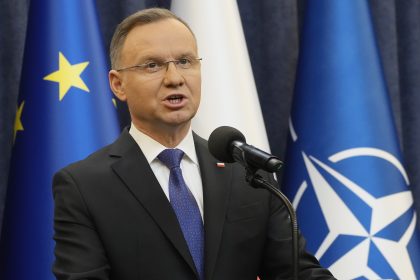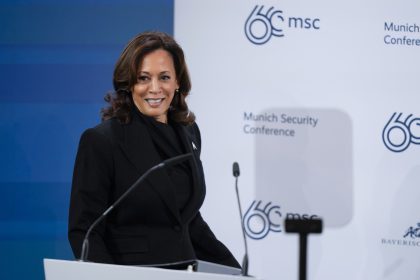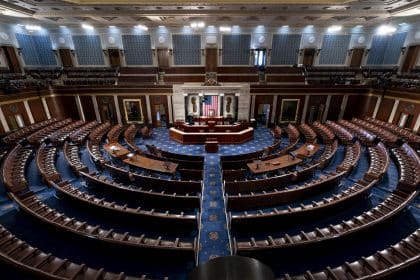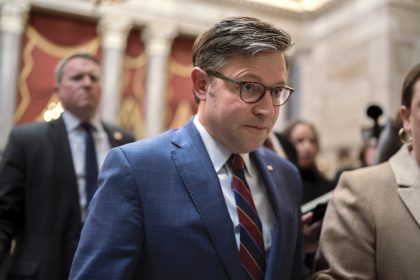Davos Breakthrough: France, US Agree to Press Ahead With Global ‘Digital Tax’ Talks

The United States and France agreed Thursday to proceed with talks that could result in a global rewrite of cross-border tax rules for the digital era.
The agreement to temporarily set aside a brewing tariff war over France’s digital tax on big tech companies to focus on securing a broader global deal, was announced by French Finance Minister Bruno Le Maire at the World Economic Forum in Davos, Switzerland.
The announcement came after a series of meetings in Davos between Le Maire, U.S. Treasury Secretary Steven Mnuchin, and Angel Gurría, secretary general of the Organization for Economic Cooperation and Development.
“We had long talks this morning with the U.S. Treasury Secretary and the OECD Secretary General, and I am happy to announce to you that we have found an agreement between France and the United States, providing the basis for work on digital taxation at the OECD,” Le Maire said.
“It’s good news, because it reduces the risk of American sanctions and opens up the prospect of an international solution on digital taxation,” he added.
Le Maire and Mnuchin concluded their meetings at the forum by exchanging a series of written proposals for the first redrafting of international tax rules since the 1920s.
The proposals will be considered by the 137 member governments of the OECD when they meet next month in Paris.
Speaking to Reuter’s Axel Threlfall on the “Davos Today” television program Thursday morning, before his final meeting with Mnuchin, Le Maire emphasized just how far the two sides had come during negotiations at the forum.
“We arrived in Davos under threat of U.S. sanctions,” he said. “A few days later, we have the possibility of building together a very strong international solution for digital taxation.”
“Of course, we are all aware that, having a new international taxation system, being able to tax the digital activities, is complicated. It takes time. But we are on the right track,” he added.
Gurria has been working for years to create a level playing field on digital taxation. Now that the U.S. and France have agreed to de-escalate their dispute over a proposed French tax on big tech companies, he said a draft framework for global digital tax could be ready by summer.
“We have no Plan B — we just have to get it done,” he said this week while speaking on a Davos panel.
That’s because other countries, including Britain, Italy and Spain, are currently imposing their own national digital-tax regimes.
Le Maire told Reuters that reality overhangs every discussion of the digital taxation issue.
“The question is, what kind of taxation regime do we want?” he said. “Do we want to have a world in which everybody has their own national taxation on digital activities — a prospect that raises the concern over taxation conflicts among nations — or do we want the same system of international taxation for digital activities apply to everyone?
“I’m deeply convinced that the second option is the best option,” he said.
France has already postponed collection of its digital tax, and has said it will scrap its tax if an international accord can be reached.
One thing France does not want is the so-called optional taxation system that has been discussed in some quarters, Le Maire said..
“That’s a red line for us, because the reality is, no private company wants to be taxed,” he explained. “What we want is a system and a taxation solution that is credible, fair, and solid.”
























